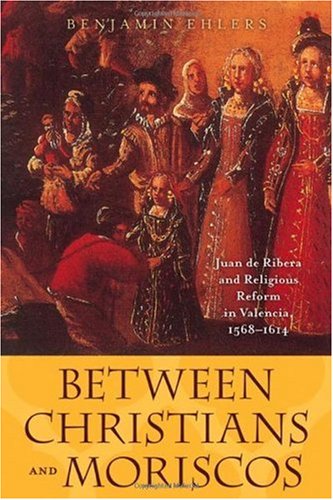

Most ebook files are in PDF format, so you can easily read them using various software such as Foxit Reader or directly on the Google Chrome browser.
Some ebook files are released by publishers in other formats such as .awz, .mobi, .epub, .fb2, etc. You may need to install specific software to read these formats on mobile/PC, such as Calibre.
Please read the tutorial at this link: https://ebookbell.com/faq
We offer FREE conversion to the popular formats you request; however, this may take some time. Therefore, right after payment, please email us, and we will try to provide the service as quickly as possible.
For some exceptional file formats or broken links (if any), please refrain from opening any disputes. Instead, email us first, and we will try to assist within a maximum of 6 hours.
EbookBell Team

4.8
74 reviewsIn early modern Spain the monarchy's universal policy to convert all of its subjects to Christianity did not end distinctions among ethnic religious groups, but rather made relations between them more contentious. Old Christians, those whose families had always been Christian, defined themselves in opposition to forcibly baptized Muslims (moriscos) and Jews (conversos). Here historian Benjamin Ehlers studies the relations between Christians and moriscos in Valencia by analyzing the ideas and policies of archbishop Juan de Ribera.
Juan de Ribera, a young reformer appointed to the diocese of Valencia in 1568, arrived at his new post to find a congregation deeply divided between Christians and moriscos. He gradually overcame the distrust of his Christian parishioners by intertwining Tridentine themes such as the Eucharist with local devotions and holy figures. Over time Ribera came to identify closely with the interests of his Christian flock, and his hagiographers subsequently celebrated him as a Valencian saint.
Ribera did not engage in a similarly reciprocal exchange with the moriscos; after failing to effect their true conversion through preaching and parish reform, he devised a covert campaign to persuade the king to banish them. His portrayal of the moriscos as traitors and heretics ultimately justified the Expulsion of 1609–1614, which Ribera considered the triumphant culmination of the Reconquest.
Ehler's sophisticated yet accessible study of the pluralist diocese of Valencia is a valuable contribution to the study of Catholic reform, moriscos, Christian-Muslim relations in early modern Spain, and early modern Europe.